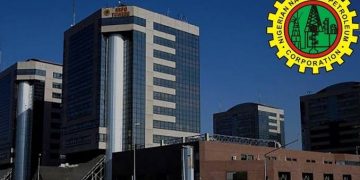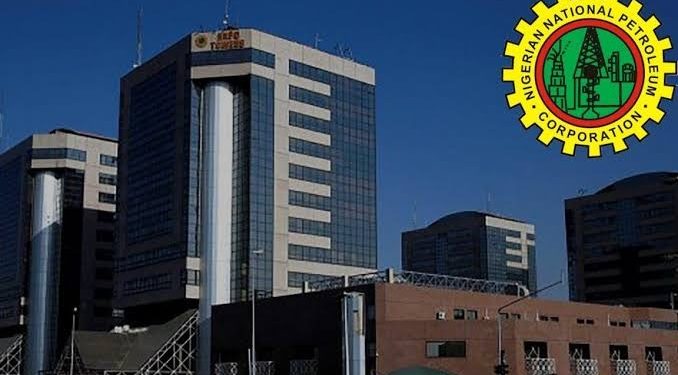By John Ikani
It has been over a year since the Nigerian National Petroleum Company (NNPC) Limited first announced in April 2021 that it would be delivering zero remittance to Federation Account Allocation Committee (FAAC). No thanks to overwhelming fuel subsidy payments (a single consumption item that is hardly ever available to end-users).
Last year’s announcement made Nigerians go nuts with leaders and citizens alike expressing disgust at the downturn. In his reaction, the Governor of Bauchi State, Senator Bala Mohammed attributed the downturn to “the cluelessness of the All Progressives Congress (APC)-led administration.”
According to him, it is “because of the cluelessness and lack of capacity to manage the economy that we have found ourselves in this situation. There is even a blame game between the members of the party within the APC.”
Fast forward to a year after, Nigeria has gotten much worse, such that NNPC delivering Zero remittance to FAAC for the 4th time in a row wasn’t even big news in Africa’s most populous country!
To borrow the words of the presidential aspirant of the Labour Party (LP), Peter Obi: “Nigeria has not paid a dollar into its account since January 2022 even though prices of crude oil have gone up,” he lamented.
“Nigeria is no longer a destination for investors. The nation is collapsing and it is happening fast. It may not be too long before it will completely collapse.”
Ordinarily, one would expect Nigeria to get her acts together after JPMorgan on May 10 downgraded Africa’s biggest economy on its emerging market sovereign recommendations due to the country’s failure to transfer three-month oil revenue (at the time) to the Federal Government.
To simply put, Nigeria was moved from an “overweight” to a “market weight” country, which means that the country’s bonds are risky and will likely not provide better yields than other emerging market economies. No thanks to Nigeria’s failure to take advantage of high oil prices.
Sadly, there is no sign of positive reaction as the NNPC went on to announce a 4th consecutive zero remittance on May 24, and might as well record a consecutive 5th in furtherance of a worrisome trend that now seemingly has no end in sight.
It is even worse that the bulk of Nigerians are less concerned with their attention heavily invested in frivolities like how to become a party delegate. It is about time the very few concerned gave this ugly trend the kicks and alarming attention it deserves.
With JP Morgan’s reclassification of Nigeria’s ratings, analysts predict that the downgrade will trigger an increase in the risk premiums attached to Nigeria’s bonds and negatively impact investment inflows. Lower investments mean less government revenue and continued forex (FX) illiquidity.
Speak of FX illiquidity, it’s interesting how the economic problems plaguing Nigeria either have roots in FX or result in FX illiquidity. FX Liquidity pertains to a currency pair’s ability to be bought and sold without causing a significant change in its exchange rate. The reverse is the case for illiquidity.
Perhaps, there wouldn’t have been any need to write/add this chapter to Nigeria’s big book of lamentations if the nation’s economy was not overdependent on dollars. No thanks to the exchange rate being perfectly correlated with the price of oil and the resultant dollar related export earnings.
Data from copious sources have repeatedly shown that the country of over 200 million people is affected by the volatility of crude oil prices in the international market, particularly in the exchange rate value of the naira. Without oil, the Nigerian economy in its current state will collapse.
This is because the oil sector provides for 85% of Nigeria’s export earnings and 55% of its government revenues. A development which makes the nation highly dependent on the dollar for its survival with elites like ex-presidents, former and serving governors e.t.c inundating the Central Bank of Nigeria (CBN) with FX requests.
On the other hand, ordinary citizens and business owners in need of dollars have to contend with the hard task of obtaining the hard currency from the black market with rates as high as N610/$1.
Governments and experts have long identified developing Nigeria’s manufacturing sector as key to solving the nation’s foreign exchange problem. Sadly little to nothing has been done in that regard, a development which begs the question – what sort of government identifies a problem and continues to dither on solutions?
How long must importers be left with no choice but to increase the nation’s dependence on FX by importing items that can be locally produced? There’s now more than ever the pressing need for Nigeria to invest in the agricultural value chain to create jobs and facilitate exports.
It is about time Nigeria also stabilised her epileptic power supply by taking a cue from Angola, which ranks as Africa’s second-largest exporter of crude oil. Stable power has innumerable advantages including being indispensable to the creation of knowledge-based economy like that of India which placed the IT/ICT industries at the forefront of its economic growth and is valued at over 150 billion dollars per annum.
More so, Nigerians should be open to measures aimed at reducing overdependence on FX. Policies like the restrictions on the importation of 43 items should not be regarded as sabotage of Igbo businesses. Similarly, stringent regulations of Bureau De Change (BDCs) should not be given the ethnic colouration of an attack on Northern businesses.
Above all, we owe it to ourselves not to fiddle while Rome burns. Disastrous trends like NNPC’s zero remittance to FAAC should command worrisome concerns and elicit positive change-provoking reactions. The same applies to worsening insecurity, the collapse of social sectors including education and health, as well as the growing army of jobless young people, among other malaise conspiring to make Nigeria a failed state. Sadly some would argue that we are already there.




































